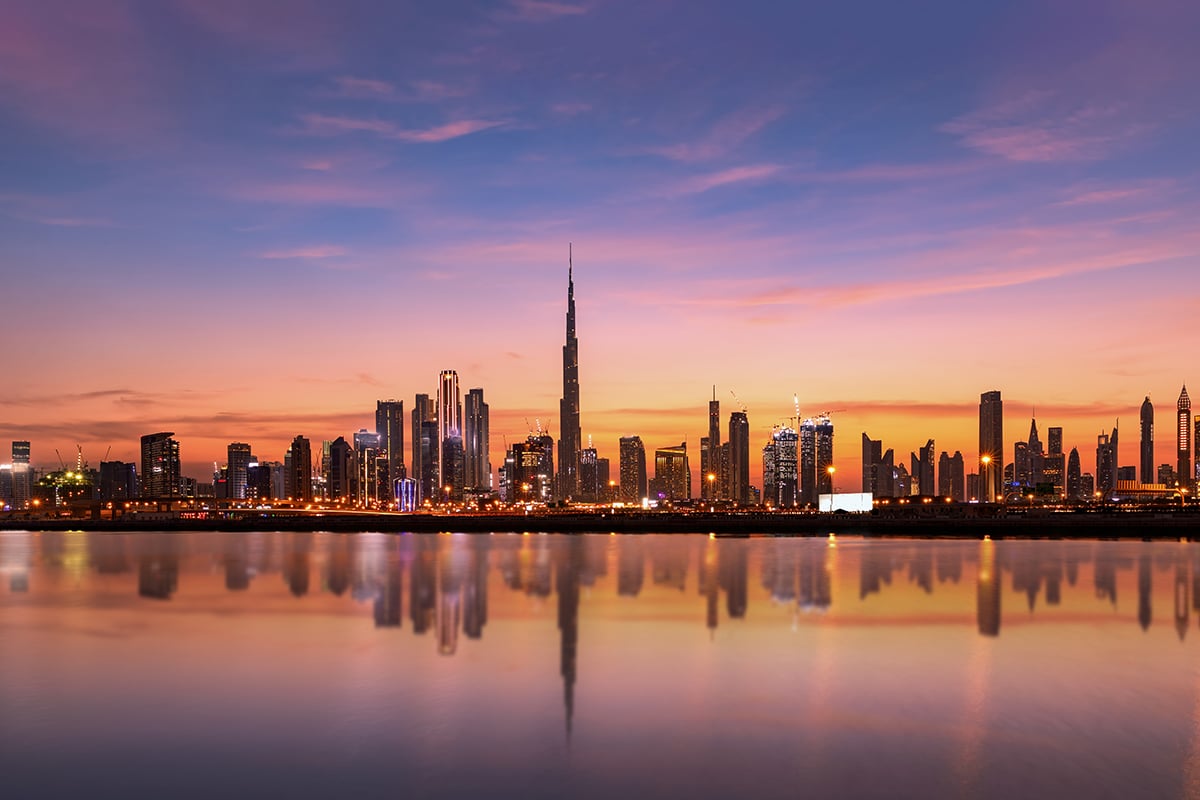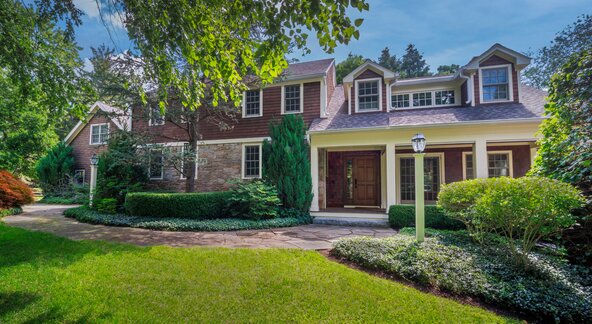The luxury real estate market has shown resilience in the face of global economic challenges, and according to recent insights from Knight Frank’s Prime Global Forecast for 2025, the future of prime real estate looks promising. Wealth hubs like Dubai, New York, Geneva, and Paris are expected to be at the forefront of luxury home price growth. As the world recovers from the effects of the pandemic and adjusts to new economic realities, the luxury real estate sector is undergoing significant transformations, marked by both opportunities and challenges. This article will provide a comprehensive analysis of where luxury home prices are likely to increase around the world, what factors are driving these changes, and which markets may face difficulties as 2025 approaches.
The Resurgence of Prime Real Estate
Prime real estate, defined as the top 5 percent of the market, has experienced a notable recovery in 2024. After a tough year in 2023, marked by declines in several major luxury markets, the first quarter of 2024 saw the highest rate of growth since 2022, with prices rising by 4.1 percent globally. Knight Frank’s report highlights that 78 percent of the 44 markets analyzed reported positive price growth, with only 19 percent seeing a decline. This marks a return to confidence for the luxury property sector after a year of stagnation.
According to Liam Bailey, global head of Knight Frank’s research department, the forecast for 2025 remains optimistic. “With rates on their way down, albeit slowly, the outlook for 2025 anticipates further growth, led by Dubai, New York, Geneva, and Paris,” Bailey noted. However, the report also cautioned that some key markets may experience a standstill in prices or face potential declines due to factors like rising inventory levels and affordability constraints.
Dubai: The City of Gold Leads the Way
Among the cities poised for the strongest growth in luxury real estate prices is Dubai, often referred to as the “City of Gold.” According to the report, Dubai’s luxury property market is expected to see a 5 percent increase in prices in 2025. This anticipated growth comes on the back of a dramatic 52 percent drop in listings in prime Dubai neighborhoods over the past year. In addition, properties priced at $10 million and above have experienced a 65 percent decline in availability.
This tightening of supply is creating a favorable environment for price increases, particularly as the demand for luxury real estate in Dubai continues to surge. Over the last 12 months, real estate values in Dubai have jumped by around 20 percent, with Q3 of 2024 seeing an all-time high in property values. The influx of wealthy international buyers, especially from Asia, Europe, and Russia, has been a major driver of this price surge. With limited supply and rising demand, the forecast for Dubai’s luxury real estate market remains exceptionally strong.
New York: A Market in Transition
New York’s luxury real estate market has also shown signs of improvement in recent years, and the forecast for 2025 is one of steady growth. Knight Frank predicts a 3 percent increase in prices for prime properties in the Big Apple. This growth is primarily attributed to low inventory levels, with the number of active listings being 54 percent below the five-year average. This lack of supply, coupled with sustained demand from both domestic and international buyers, positions sellers to benefit as we head into the spring season.
New York’s status as a global financial hub and cultural epicenter continues to attract wealthy buyers, further boosting demand for luxury homes. Moreover, as the city adapts to new post-pandemic realities—such as remote work trends and an increasingly international population—its luxury real estate market is showing resilience. Despite challenges like higher taxes and cost of living, New York’s prime real estate market remains a safe haven for investors seeking stability and long-term growth.
Geneva: The Swiss Appeal
Geneva, known for its international organizations, strong currency, and favorable tax environment, has long attracted high-net-worth individuals from around the world. The city is expected to see a 3 percent increase in luxury property prices in 2025. Geneva’s stable political and economic climate, combined with its proximity to key financial hubs in Europe, makes it a consistent performer in the luxury real estate sector.
In addition to its global appeal, Geneva offers high quality of life, excellent education systems, and world-class healthcare, all of which continue to attract wealthy individuals looking for a secure and prosperous environment. As a result, the demand for luxury homes in the city remains robust, and the supply of high-end properties is unlikely to outpace demand in the near future.
Paris: Romance and Real Estate
Paris, the quintessential luxury destination, is also forecasted to experience a 3 percent price increase in its luxury real estate market. Despite challenges posed by high property taxes and regulatory complexities, Paris remains one of the most desirable cities for the ultra-wealthy. The city’s historic charm, cultural significance, and vibrant lifestyle make it an evergreen luxury market.
Paris’ luxury real estate sector benefits from both domestic and international demand. Wealthy buyers from Asia, the Middle East, and the United States continue to seek out premium properties in the French capital. However, the limited availability of prime properties and the city’s status as a global cultural hub contribute to sustained price growth in 2025.
Slower Growth and Potential Declines in Other Markets
While several cities are poised for growth, not all prime real estate markets are expected to fare equally well in 2025. Some markets, particularly those in the Asia-Pacific region, may experience slower growth or even price declines due to economic and geopolitical challenges.
In cities like Singapore, Miami, and Hong Kong, luxury real estate prices are expected to either plateau or grow at a slower pace in 2025. These markets, while still attractive, face issues such as rising interest rates, affordability challenges, and shifting buyer preferences. In particular, Singapore’s luxury market has been impacted by regulatory measures aimed at cooling the real estate sector, while Hong Kong continues to deal with the fallout from political instability and the lingering effects of the pandemic.
Moreover, Los Angeles and Beverly Hills, which have seen significant price increases in recent years, may experience price declines in 2025. These areas have witnessed a 52 percent increase in prices over the past five years, but rising inventory levels and cooling demand could lead to a slowdown in growth. However, experts predict that ultra-prime properties—those offering unique features or exceptional locations—will still command record prices.
Key Drivers of Luxury Real Estate Growth
Several factors contribute to the growth of luxury real estate markets in cities like Dubai, New York, Geneva, and Paris. These include:
- Limited Supply: Many prime markets, especially in cities like Dubai and New York, are experiencing a significant reduction in available listings, which is driving prices higher. As wealthy buyers continue to seek out limited opportunities, the law of supply and demand is pushing prices up.
- Wealth Migration: The global trend of wealth migration, where high-net-worth individuals move to cities with favorable tax environments, political stability, and high quality of life, is fueling demand for luxury properties in cities like Geneva and Paris.
- Global Economic Factors: The global economic recovery, aided by the decline in interest rates and improving market conditions, is helping to stabilize and even boost luxury property prices. As investor confidence returns, prime real estate markets are poised to benefit.
- Changing Buyer Preferences: The shift towards remote work and digital entrepreneurship has made cities like Dubai and New York more attractive to high-net-worth individuals who seek both luxury living and business opportunities. These cities offer the infrastructure, lifestyle, and connectivity that modern buyers desire.
- Stability and Long-Term Investment: Luxury real estate continues to be viewed as a stable, long-term investment, especially in uncertain times. Cities with strong reputations for economic stability, like Geneva and Paris, offer a safe haven for investors looking to preserve and grow their wealth.
Conclusion: A Mixed Outlook for Luxury Real Estate in 2025
The luxury real estate market is showing signs of strength as we head into 2025, particularly in wealth hubs like Dubai, New York, Geneva, and Paris. These cities are expected to experience price increases in the prime property sector, driven by limited supply, high demand, and favorable economic conditions. However, not all markets will enjoy the same level of growth, and some—especially in Asia and the US—may experience slower growth or price declines.
For investors and buyers, understanding the dynamics of each market is crucial to making informed decisions. While opportunities abound in key markets, careful consideration of factors like inventory levels, buyer demand, and economic stability will be necessary to navigate the evolving landscape of luxury real estate in 2025.



